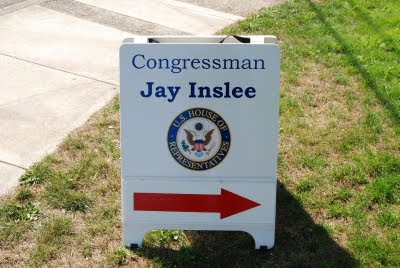Mindless Proclivities
It's been a really rough past two months for police officers here in the Puget Sound area. Six officers have been killed in three separate shootings between Halloween and Christmas of this year. "Out of control" doesn't begin to describe it.
Unsurprisingly, there's been a lot of soul-searching going on as people work to understand whats going on around them. And, as is usually the case, the spotlight very quickly swings around to gun culture in America. This being the Seattle area, and therefore a very Blue part of the state of Washington (and the United States as a whole), public access to firearms is a convenient and recurring villain.
One editorial that I read (and am using this space to re-work my comments on) calls for an assessment of "[...] how the culture became awash in guns and embraced a mindless proclivity to use them."
I think this statement, while powerful, REALLY misses the point. The problem isn't a "mindless proclivity" to use guns in our culture - the problem is a mindless proclivity to use violence as a solution to problems, real or imagined, in our culture.
Tom decides he needs some money - he takes it from someone else; by force if need be.There is an assumption sometimes, which I don't think that reality bears out, that a proclivity to use violence can be tempered, if perhaps not thwarted, through simply blocking legal access to guns. (We'll leave aside for the time being the difficulties of preventing the illicit trade in weapons.) While no one says so in as many words, there seems to be an understanding that in the absence of easy access to weapons, former armed robbers will turn to gainful employment, and urban gangsters will return to school. It doesn't take a very careful reading of the newspaper to realize that any of the above scenarios can be carried out without resorting to firearms. It's true that guns make it easier, but simply banning firearms is unlikely to halt violence in and of itself.
Jill doesn't do as she's told - so Jack cows her into submission.
Dick doesn't receive the "respect" he "deserves" - he gets what owed him by hurting or killing those that don't toe the line.
Sally desperately wants to start a new life - to free herself for a new lover she murders her partner and/or children.
Part of the problem, as I understand it, is that we've simply accepted as a given that Americans are violent. Not feeling able to do anything about this, we simply resort to damage control. I don't see how this becomes a winning strategy. We should not be ignoring a greater social tendency to resort to violence in favor of a narrow focus on firearms. I'm not an advocate for unfettered access to whatever firearms one might want - you have to register a car, so I don't see the problem with registering guns. But I think that we need to understand that the invention of violence predated the invention of gunpowder, and that while restrictions and bans will make guns may reduce the incidence of violence with guns, it won't likely reduce violence as a whole. And someone who bleeds out from a knife wound, has their skull bashed in with a hammer or is throttled bare-handed is just as dead as anyone else. The fact that they weren't shot to death shouldn't make their demise any less untimely, or its circumstances any more acceptable.








